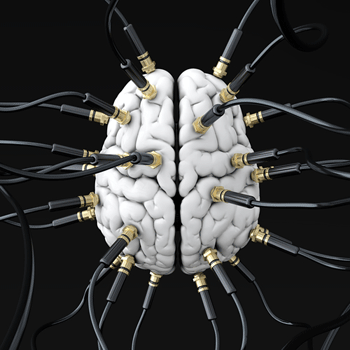Exploring Cognitive Psychology
The cognitive psychology is relatively a new branch in the field of psychology. Nonetheless, it has become increasingly popular over the past few years, mostly because of the psychologists’ interests in the brain as a complex computing system.
It more or less deals with the workings of the brain and how it’s functioning relates to mental function, such as:
· Learning
· Memory
· Attention and Perception
· Reasoning
· Language
· Conceptual development and decision making
It is also the branch of psychology that does in-depth studies about the mental processes which include how people think about stuff, perceive things, remember facts and learn things. As it is a more significant field constituted in cognitive science, it is also related to the other disciplines, such as linguistics, philosophy, and neurosciences.
What is the Focus of Cognitive Psychology?
Its primary focus is on how individuals first acquire information and then how they process it and store it in their minds. There are many ways in which this branch of psychology can be applied; for example, working to improve memory, increase the decision-making accuracy and to formulate educational curricula to intensify learning opportunity.
A Brief History
Till the 1950’s, the dominant school of thought in the field of psychology had been Behaviorism. From behavioral psychology, psychologists started to make a shift to studying the problem-solving capability of the human mind along with attention span and memory. This period from 1950 to 1970 led to the birth of this branch of psychology, also often referred to as ‘cognitive revolution.'
Research, during this period, focused on building processing models and cognitive methods of application. It was during this time that the phrase ‘cognitive psychology’ first came into use by an American psychologist – Ulric Neisser. He defined this field of psychology as the following in his book, ‘Cognitive Psychology,'
It involves “all processes by which the sensory input is transformed, reduced, elaborated, stored, recovered and used...it is apparent that cognition is involved in everything a human being might do; that every psychological phenomenon is a cognitive phenomenon.”
Why it is classified as a Different Sub-Field of Psychology?

There was a need to classify cognitive psychology as a separate and independent branch of psychology because,
· It focuses its research only on the internal mental states of the human mind instead of focusing on the observable behavior of the individual as is done in the field of behaviorism.
· Next, it utilizes the scientific research method to understand the mental processes of the human mind; whereas in psychoanalysis, the psychologist mainly relies on the subjective perceptions.
Some Research in the Field
Some theoretical approaches to this particular branch of psychology have focused on dividing an individual's cognitive development into various stages that are easily identifiable. Some significant psychologists who approached psychology in such a way include Piaget and Vygotsky, who were contemporaries of each other, but arrived at different conclusions regarding what helps shape cognitive development that occurs as one gets older.
There have been many research studies done in this field about which you should know if you are interested in psychology; each of these studies focuses more on applied psychology as opposed to theoretical approaches to psychology.
A Career in Cognitive Psychology
Because the field of cognitive psychology is widespread and touches a lot of other areas, it is studied by individuals who belong to different domains. For example, the following individuals can all benefit from studying cognitive psychology.
· Students who are interested in knowing about the behavioral neurosciences of humans along with artificial intelligence, linguistics, and industrial-organizational psychology.
· Educators, teachers and curriculum designers who want to gain knowledge about how the minds of children and adults process and memorize information.
· Scientists, designers, artists, architects and even engineers can also benefit from understanding the internal processes and states of the human mind.
Choosing a career in this field can be rewarding if you are interested in any of the topics presented above; as a researcher, you will help solve real-world problems that are related to how the mind functions, the solutions to such issues have real-world application.
As someone working in this field, your salary could range anywhere from $60,000 to $115,000, depending on, of course, your experience, and where you work. If you are unsure if a career in this field would be right for you, be sure to browse around for research that has been conducted in the area, including the studies that have been mentioned.
Practice with Free IQ Tests
Recent Articles
-
What type of test did I take
Apr 04, 22 04:09 AM
I was given a psychological test years ago, but wasn’t told what it was for. The rating used a bell curve and my score fell in the above average not yet -
ﹰﹰﹰﹰﹰﹰﹰGOOD
Aug 13, 21 03:20 PM
Since the enneagram test helps people to understand their strength and weaknessess. And helps them remove their weaknesses then the test is good -
Knowing the inner me
Aug 13, 21 03:17 PM
Sometimes I ask myself that is this my behaviour or not? Because I am really shy and I lack confidence, I find it hard to socialize with other people.I
